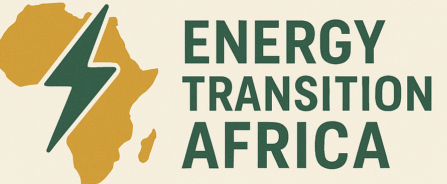Fossil Fuel Freedom: Why Nigeria Must Ditch Oil to Secure Its Future
By Vincent Egoro |

In the heart of Lagos, the rhythmic hum of generators underscores a national narrative: Nigeria's deep-rooted dependence on oil. For decades, this black gold has been the cornerstone of our economy, shaping policies and perceptions alike. Yet, as the global energy paradigm shifts and the specter of climate change looms larger, we must confront a pivotal question: Is our allegiance to fossil fuels propelling us forward or anchoring us to vulnerabilities?
The Fragile Foundations of Oil Dependency
Recent analyses have illuminated the precarious nature of economies tethered to oil. Goldman Sachs warns that Brent crude prices could plummet below $40 per barrel in extreme scenarios, driven by global economic slowdowns and policy shifts. For nations like Nigeria, where oil revenues constitute a significant portion of the national budget, such volatility isn't just a statistic—it's a looming threat to our fiscal stability.
The "resource curse" is more than an academic concept; it's a lived reality. While oil promises wealth, it often brings economic distortions and hampers diversification efforts. Our over-reliance on this single resource has left us exposed, with the ebb and flow of global oil prices dictating the rhythm of our national economy.
Climate Change: The Unseen Cost of Oil Dependence
Beyond economics, our fossil fuel fixation exacts a toll on our environment and communities. The recent lethal heatwaves in the Sahel region, intensified by human-induced climate change, serve as a grim reminder of the stakes. These aren't distant events; they're tragedies that touch our neighbors, our families, ourselves.
Moreover, the environmental degradation from oil extraction has left scars on our land and waterways. The Niger Delta, once a symbol of natural abundance, now bears the marks of spills and pollution, affecting livelihoods and health.
The Imperative for Transition: A Vision for Nigeria
The path forward is clear: diversification and a decisive shift towards sustainable energy. Nigeria's Renewable Energy Master Plan (REMP) aims to increase the contribution of renewable energy to account for 10% of total energy consumption by 2025. This isn't just about policy; it's about reimagining our nation's future.
Embracing Renewable Energy: Opportunities and Challenges
Our nation's potential is vast. With abundant sunlight, solar energy stands out as a beacon of opportunity. Investing in renewables can not only reduce our carbon footprint but also create jobs, stimulate local economies, and provide energy access to underserved communities.
However, the transition isn't without challenges. Phasing out fossil fuels could impact our GDP significantly, with projections estimating a potential reduction of up to $30 billion. Yet, this should be viewed not as a deterrent but as a call to action—a prompt to invest in alternative sectors and build resilience.
Conclusion: Charting a Sustainable Path Forward
The winds of change are blowing, and Nigeria stands at a pivotal juncture. By reducing our dependence on fossil fuels and championing sustainable energy, we can safeguard our economy, protect our environment, and ensure a prosperous future for generations to come. The journey won't be easy, but with collective resolve, innovation, and a commitment to the well-being of our people and planet, we can navigate this transition and emerge stronger.
Expert Analysis, Directly to You
Join our community of experts and decision-makers. Stay informed with our weekly deep dives into Africa's energy future.
Weekly briefing. Expert insights.
No spam. No generic fluff.
About the author
Vincent EgoroContributor at Energy Transition Africa, focusing on the future of energy across the continent.
